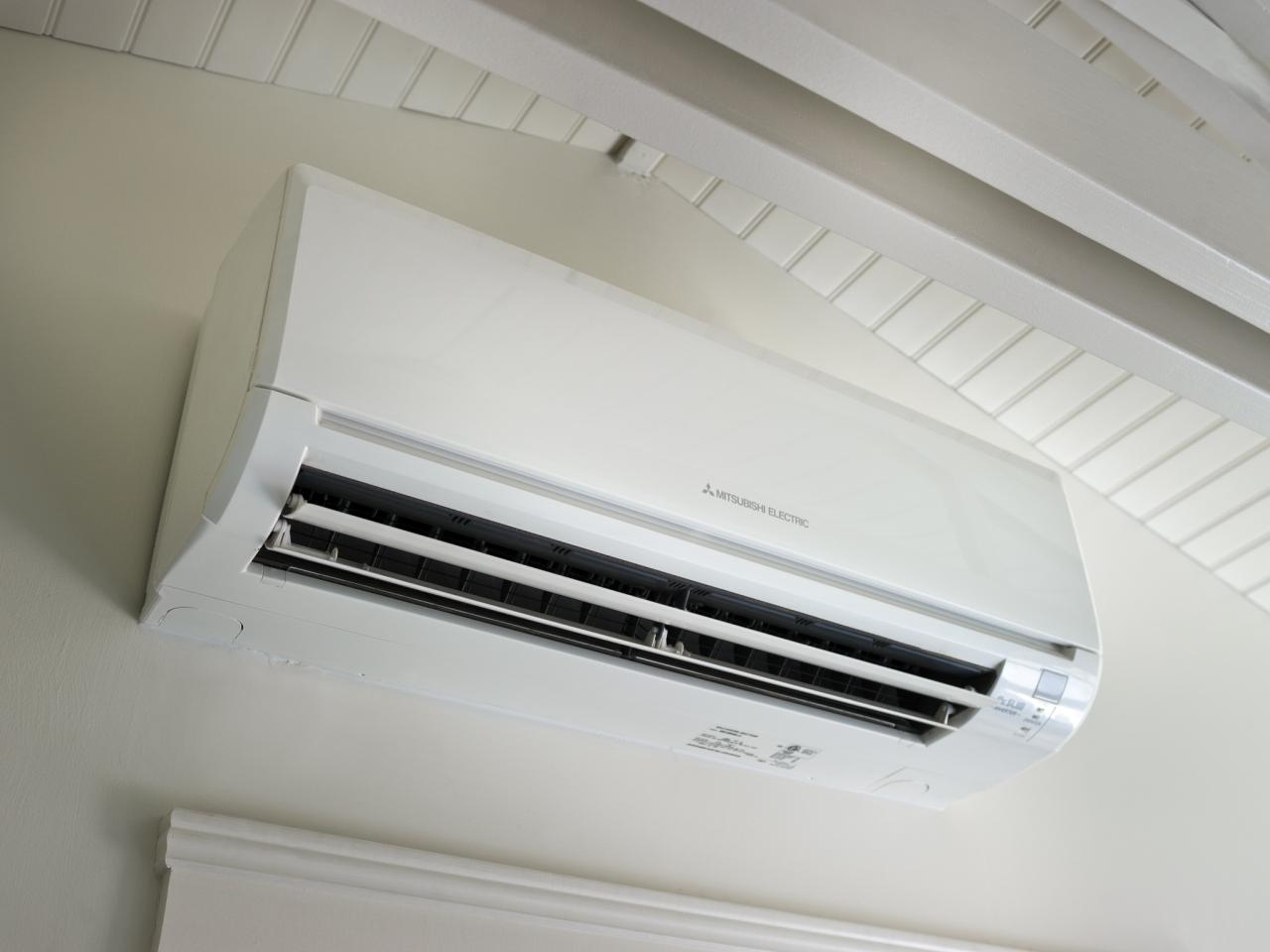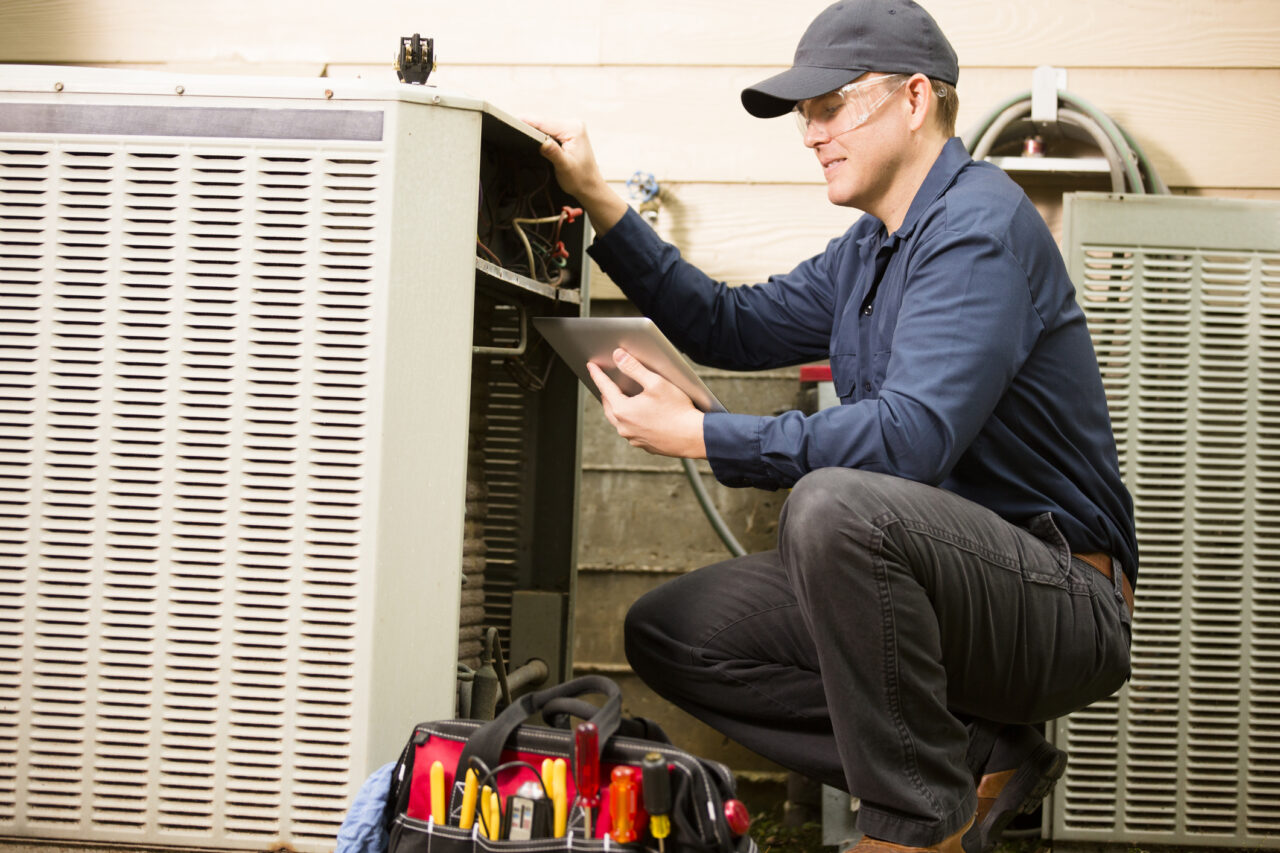Picture your air conditioning unit as a master sculptor, adeptly chiseling away at the oppressive warm in your house, leaving a trendy, comfy sanctuary. Have you ever wondered just how this modern-day wonder accomplishes such a task?
The detailed dance of cooling agents, coils, compressors, and air ducts all operate in harmony to develop that stimulating blast of chilly air. However just how exactly do these parts come together to create that much-needed respite from the sweltering heat?
Allow's discover the internal operations of air conditioning unit and debunk the scientific research behind staying cool.
Secret Takeaways
- Effective Air conditionings use refrigerants to take in and launch warm, boosting air conditioning and energy effectiveness.
- Routine maintenance makes certain optimal performance, durability, and power financial savings.
- Proper sizing and layout protect against energy waste and guarantee also cooling distribution.
- Comprehending air flow characteristics and optimization enhances cooling down performance and comfort levels.
The Fundamentals of Cooling
Understanding the principles of a/c can greatly enhance your understanding of how these systems operate efficiently. Power performance is a vital element of cooling, as it not only affects your electrical power expense however additionally the setting. Efficient air conditioners use much less energy to cool down a room, making them cost-efficient and environmentally friendly. By purchasing an energy-efficient device, you can delight in a comfortable interior atmosphere while lowering your carbon footprint.
Moisture control is another vital function of cooling. Air conditioners assist regulate the moisture degrees in your house, developing a much more comfortable ambience. Excess moisture can result in mold development and discomfort, while low moisture degrees can cause completely dry skin and respiratory concerns. A well-maintained a/c unit can efficiently control humidity, making sure a healthy and balanced and pleasurable living atmosphere for you and your household.
Understanding how air conditioning systems take care of power efficiency and humidity control can help you make notified choices when picking and utilizing these systems in your house.
Comprehending Cooling Agents and Their Duty
When it pertains to a/c unit, recognizing cooling agents and their duty is essential. You'll learn about the importance of cooling agents in cooling systems and how they facilitate the warm transfer procedure.
In addition, taking into consideration the ecological impact of cooling agents is vital for lasting air conditioning remedies.
Function of Refrigerants

Cooling agents play an important function in the operation of air conditioners by helping with the transfer of warm. The efficiency of a refrigerant directly affects the cooling procedure and energy intake of the system.
When thinking about refrigerants, it's critical to weigh their performance versus their environmental effects. Some cooling agents add to ozone deficiency and international warming, motivating the look for greener options. Sustainable steps concentrate on finding cooling agent options that are energy-efficient and have marginal environmental impact.
Producers are significantly buying establishing brand-new cooling agents that line up with sustainability goals. By prioritizing refrigerant efficiency and exploring sustainable alternatives, the air conditioning sector aims to lower its carbon footprint and lessen environmental harm.
Environmental Impact Considerations
Taking into consideration the ecological effect of refrigerants is essential in assessing the sustainability of air conditioning systems. When evaluating the ecological ramifications of air conditioning unit, 2 vital aspects to consider are power efficiency standards and carbon impact analysis.
- Energy Effectiveness Specifications:
- Energy-efficient a/c take in much less power, lowering general power consumption and environmental effect.
- Carbon Footprint Analysis:
- Performing a carbon footprint evaluation helps in understanding the amount of greenhouse gas discharges associated with a/c operations.
- Refrigerant Selection:
- Opting for refrigerants with reduced Worldwide Warming Possible (GWP) can significantly lower the ecological impact.
- Appropriate Disposal:
- Ensuring proper disposal of old refrigerants prevents them from harming the atmosphere.
- Normal Maintenance:
- Regular maintenance of air conditioning systems can enhance efficiency, minimizing energy consumption and ecological effect.
The Process of Warm Transfer
When your a/c runs, it relies upon a procedure of warmth transfer to cool your area effectively. This system entails the absorption of warmth from the interior air and the exchange of thermal energy to preserve a comfy temperature.
Comprehending this crucial facet aids you grasp just how ac unit efficiently manage the climate in your house.
Warmth Absorption System
To successfully cool down the air in your room, air conditioning system use a warm absorption mechanism that efficiently transfers warm. This mechanism plays a critical function in keeping temperature policy and making use of advanced air conditioning modern technology.
Below's just how the warmth absorption process works:
- Cooling agent Circulation: The refrigerant soaks up warm from the interior air.
- Compression: The compressor raises the pressure of the cooling agent, causing its temperature level to increase.
- Condensation: The hot, pressurized cooling agent launches warm outside as it condenses into a liquid.
- Growth Valve: This element lowers the refrigerant pressure, creating it to cool down and vaporize.
- Dissipation: As the cooling agent vaporizes, it soaks up heat from the indoor air, starting the cycle anew.
Thermal Energy Exchange

In the procedure of thermal power exchange, heat transfer plays a vital function in just how ac unit operate to cool down interior areas successfully. Thermal characteristics dictate that heat always streams from a warmer location to a cooler one. Air conditioning unit utilize this principle by removing heat from interior air and launching it outside, using refrigerants to facilitate the transfer.
Efficient thermal power exchange is important for the energy efficiency of an air conditioning system. By enhancing warmth transfer processes, ac system can cool down areas efficiently while minimizing power intake. Recognizing the dynamics of warmth transfer is important for developing and operating air conditioning system that supply the desired degree of convenience without unnecessary power wastefulness.
Evaporator Coils and Their Function
Understanding the function of evaporator coils is vital to understanding just how a/c unit effectively cool interior spaces. These coils play an essential duty in the cooling procedure by taking in heat from the interior air, which is after that circulated back as awesome air.
Below are some key points about evaporator coils:
- Evaporator coil efficiency directly influences the cooling efficiency of the ac unit.
- These coils include cooling agent that evaporates as it soaks up warm from the interior air.
- As the cooling agent evaporates, it transforms from a liquid state to a gas, cooling down the air at the same time.
- The cooled air is then dispersed throughout the space by means of the air ducts.
- Proper maintenance of the evaporator coils, such as routine cleaning, is important to ensure top performance and power efficiency.
Compressor and Condenser Procedures
Efficiently cooling indoor spaces involves comprehending how the compressor and condenser collaborate in an air conditioning system. The compressor plays a pivotal role in the cooling process by pressurizing the refrigerant gas, increasing its temperature and power degree. This high-energy gas after that moves to the condenser, where it launches warm to the surrounding setting, causing it to condense right into a high-pressure liquid.
The condenser further cools this fluid with warmth exchange with the outdoors air, transforming it back right into a low-pressure gas. This process improves energy effectiveness and improves the system's cooling power. Temperature level regulation is attained as the cooling agent cycles through these system parts, soaking up heat inside and releasing it outdoors.
Air Ducts and Air Distribution
To enhance air movement and assurance consistent air conditioning throughout your area, appropriate installation and upkeep of air ducts are crucial. Guaranteeing that your duct are created successfully and in a way that advertises perfect air flow characteristics is essential for the general efficiency of your air conditioning system. Air flow approaches play a substantial function in preserving indoor comfort levels, so it's important to take note of the following:
- Duct Design: Properly developed air ducts help ensure that trendy air gets to every corner of your area effectively.
- Airflow Characteristics: Comprehending how air relocations through the air ducts can assist you determine any prospective problems that may interfere with the air conditioning procedure.
- Routine Maintenance: Maintaining your air ducts tidy and free of obstructions is vital for maintaining air movement and system performance.
- Sealing Leakages: Making certain that there are no leakages in your ductwork helps avoid amazing air from escaping, boosting energy performance.
- Balancing Airflow: Correctly stabilizing the air flow in different spaces can aid maintain constant cooling throughout your office or home.
Often Asked Inquiries
Exactly how Does the Size of an Ac System Affect Its Performance and Air Conditioning Capacity?
When selecting an ac unit, remember that size matters. An unit that's as well little might struggle to cool your room effectively, while a large one might lose energy and not dehumidify effectively. Ensuring correct sizing considerations will certainly enhance efficiency and cooling capability.
The best size directly affects efficiency, assisting you remain comfortable without unnecessary expenses. So, when it concerns air conditioners, remember size for best performance and cooling power. https://stjohnswoodacinstallation.co.uk
What Are Some Typical Upkeep Jobs That Can Aid Boost the Life-span of an Ac Unit?
Routine upkeep tasks can significantly extend the life of your a/c unit. Bear in mind to change filters to ensure correct airflow and clean coils to boost cooling effectiveness.
In addition, adjust your thermostat for precise temperature level readings and inspect the cooling agent degrees for best efficiency.
Can Air Conditioners Be Utilized together with Other Cooling Approaches, Such as Followers or Dehumidifiers?
Yes, you can improve your air conditioning experience by incorporating your a/c with fans. This cooperation can aid flow great air better, providing an extra comfortable environment and potentially saving power.
Additionally, making use of a dehumidifier alongside your ac unit can enhance cooling performance by minimizing moisture levels, making your space really feel cooler.
Think about these choices to optimize your air conditioning setup and boost your overall comfort throughout warm days.
Are There Any Kind Of Environmental Concerns Associated With using Air Conditioners, and Exactly How Can They Be Mitigated?
When using ac unit, be mindful of ecological worries like power intake and greenhouse gas emissions.
To mitigate these issues, take into consideration sustainable cooling methods and green alternatives.
You can lower the influence of a/c by utilizing energy-efficient versions, keeping them routinely, and including various other cooling methods like fans or dehumidifiers.
What Innovations Are Being Made in Air Conditioning Innovation to Make Units Much More Energy-Efficient and Eco-friendly?
To make a/c unit a lot more energy-efficient and eco-friendly, innovations like clever innovation and eco-friendly features are being established. These technologies focus on enhancing power financial savings and decreasing environmental effect.

By integrating clever innovation, air conditioning systems can optimize performance based upon use patterns. Using green products and components also contributes to making these systems extra sustainable.
These advancements aim to improve performance while lessening the environmental footprint of air conditioning innovation.
Final thought
So, now you know just how air conditioning unit work!
From the refrigerants distributing through the system to the warmth transfer procedure, each part plays a crucial role in maintaining you cool down.
The evaporator coils soak up warm, the compressor and condenser release it, and the air ducts disperse the amazing air throughout your room.
Following time you activate your air conditioning, keep in mind the scientific research behind all of it! Remain amazing!
